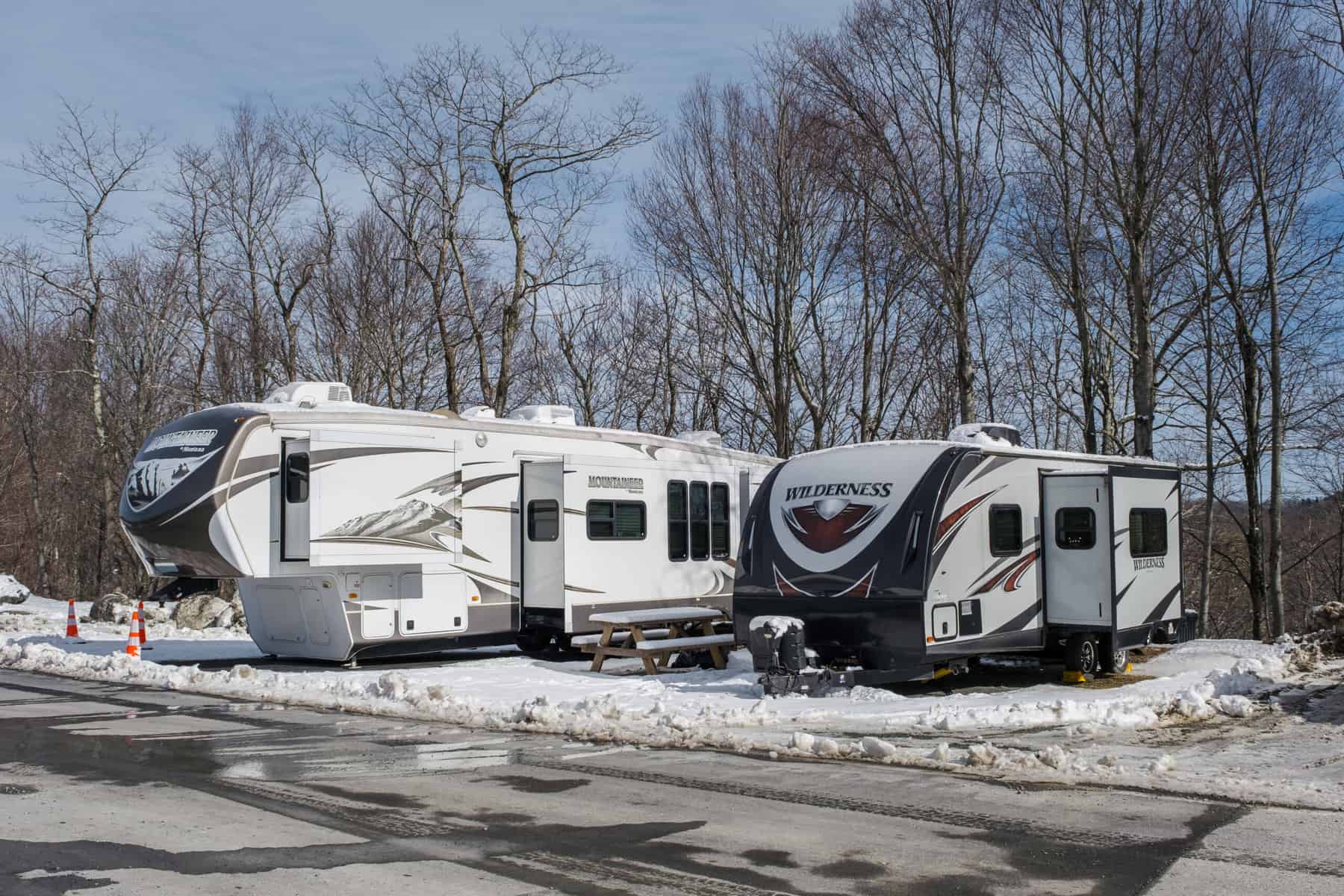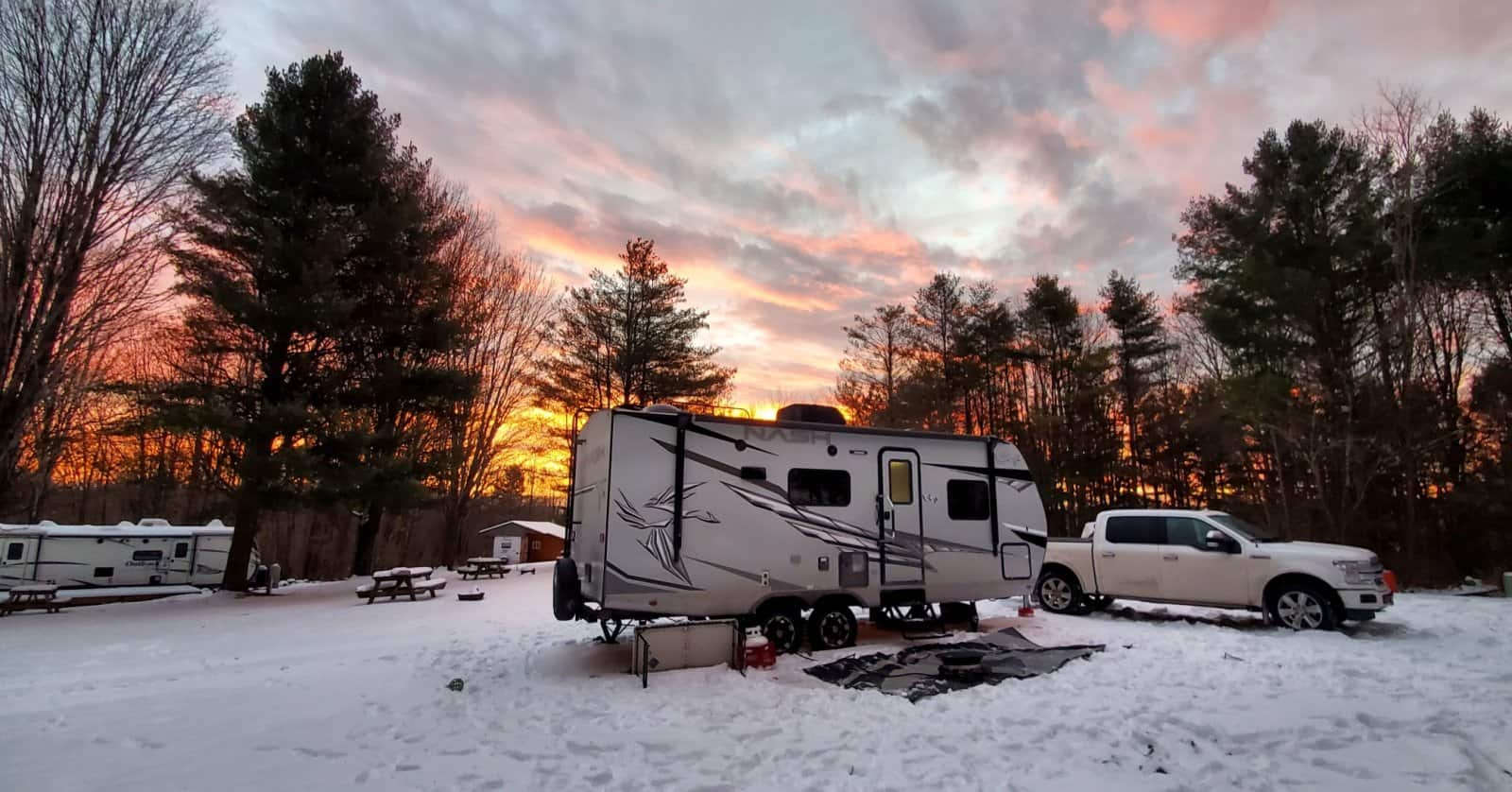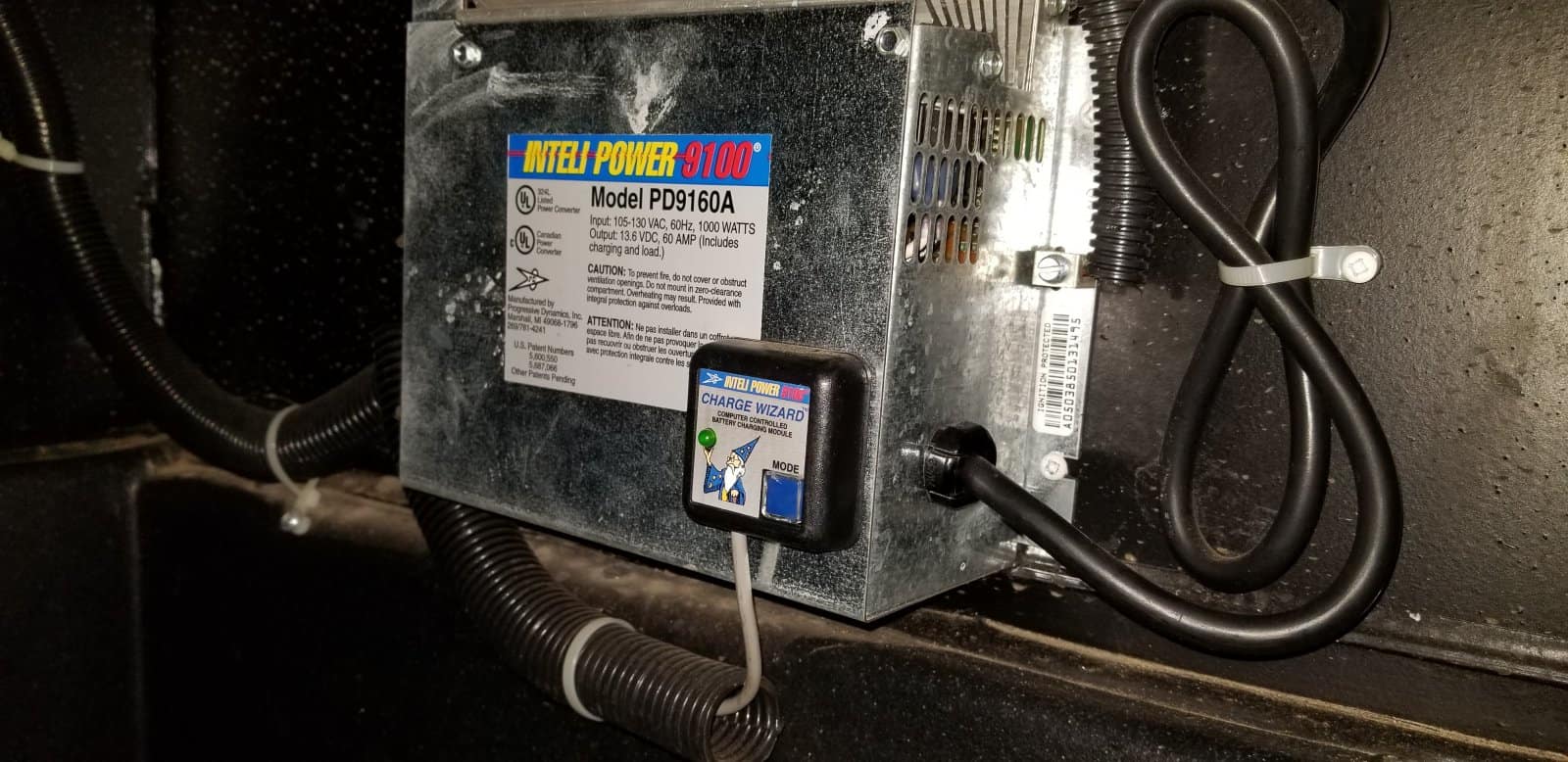What are the pros and cons of an RV propane heater vs electric heater?
RVers often find themselves asking this question when it’s cold and they have shore power available.
Using an electric heater instead of the built-in propane furnace in campers is a valid consideration.
Note: There are many forms of propane heaters. But only the propane furnace that comes standard in most RVs is used for comparison in this article.
Propane heater vs electric heater – Which is less expensive to operate?
RVers tend to be a frugal bunch. The cost factor appears to be the number one reason why the propane heater vs. electric heater question is frequently asked. The answer depends on who you ask. And also what they take into consideration.
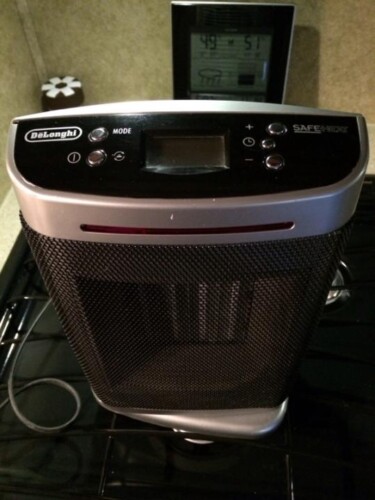
(Image: @Rev Roy, ForestRiverForums.net)
For example, the folks at Outdoorshappy.com say “A gas RV heater is an overall cheaper option. Gas is cheaper than electricity.”
The RVers at iRV2 Forums discussed the two heater choices too.
– $3.70 per gal. propane delivered will provide 91,000 btu of heat and 68,250 inside with your 75% efficient furnace.
@alank, iRV2 Forums member / *Added by the author for clarity
– Using $0.15 per KWH, 68,250 btu of resistance (electric*) heat will cost $2.99 delivered using space heaters.
– If you are using heat pumps, the electric cost should be less depending on the efficiency of the heat pump.
Most online searches for “propane heater vs electric heater” will favor propane. However, the authors are discussing home heating options, not RV.
With no clear answer I decided to run the numbers myself:
To compare the two energy sources, they need to be converted to the same units of energy. Since we are interested in the amount of heat in each source, we will use Btu as a unit of measure.
- One kilowatt hour (KWH) of electricity equals 3,412 Btus Source
- One gallon of propane equals 91,500 Btus Source
- The ratio between the two equates to approximately 26.8
Bottom line, 26.8 KWH of electricity is equivalent to one gallon of propane.
Based on this ratio, we can compare the cost of a Btu of electricity to the cost of a Btu of propane. The average price of a kilowatt hour of electricity in the United States is $0.167 at the time of writing this article.
- Doing the math, we find $0.167 / KWH times 26.8 is the financial equivalent of $4.47 per gallon of propane.
Let’s assume both energy sources produce the same amount of heat inside a trailer or motorhome per Btu. Then we discover propane is the less expensive choice. At least when propane costs less than $4.47 per gallon (as it is most everywhere at this time of writing).
Many RVers fail to consider that RV heaters (furnaces) are far from 100% efficient.
Most electric space heaters are 100% efficient. @Alank on the iRV2 forum post (shown above), was smart enough to take this into account.
New home gas furnaces are 95% or more efficient. But RV furnaces are much less efficient. Some like @Alank say 75%, while others are less optimistic and quote 60% efficiency.
Let’s assume 70% efficiency for this article.
- Let’s recalculate our numbers above using 70% efficiency for an RV furnace. We find that 91,500 BTUs x .70 (70% efficiency) = 64,050 Btus of heat energy directed into the interior of the RV per gallon of propane.
- 64,050 Btus of propane interior heat divided by 3,412 BTUs per KWH of electricity equals a ratio of approximately 18.8.
- Doing the math with our revised numbers we find $0.167 / KWH times 18.8 equals $3.14 per gallon of propane.
In this scenario, propane is still the cheaper option. That’s if it’s less than $3.14 per gallon.
Last week I paid $3.49 per gallon to fill the propane tank cylinders on my travel trailer. In my case, electricity becomes the less expensive option to answer the propane heater vs. electric heater question.
Now run the numbers using the cost of each energy source in your area. Use the above 70% efficiency formula. The results will be about a 50/50 split. I believe it will be tipped in favor of electricity. That’s if you factor in the use of heat pumps for your rig.
There is no clear answer regarding which costs less. Review the advantages of each energy source. This may provide you the answer to the propane heater vs. electric heater question.
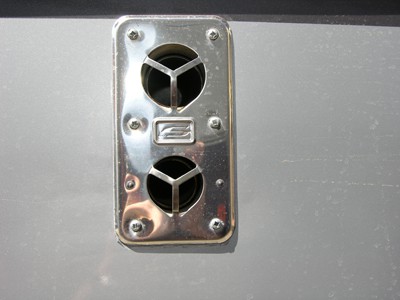
Propane heater VS electric heater. The advantages of each
Electric RV Heater Pros
- It’s a “Free” heat source. Is electricity is included in your nightly campsite rent? Then it makes perfect sense to take advantage of electric hookups. Use an electric heater, not your propane furnace. You pay nothing extra for the electricity. The electric heater also saves the propane in your cylinders.
- Zonal heating. Electric heaters allow you to heat one desired area in the RV.
- Quiet. Electric heater fans tend to be quieter than RV furnaces. Some radiant electric heaters have no fan at all.
- Efficient. Most forms of electric heaters are 100% efficient. RV furnaces are 60-75% efficient.
- Convenient. When your RV is plugged into shore power you basically have an endless supply of heat. This negates the need to run your RV furnace. Skip RV propane cylinder refills, too.
- Peace of mind. Some RVers have a fear of propane gas. They prefer to run everything on electricity when possible.
Propane RV Heater Pros
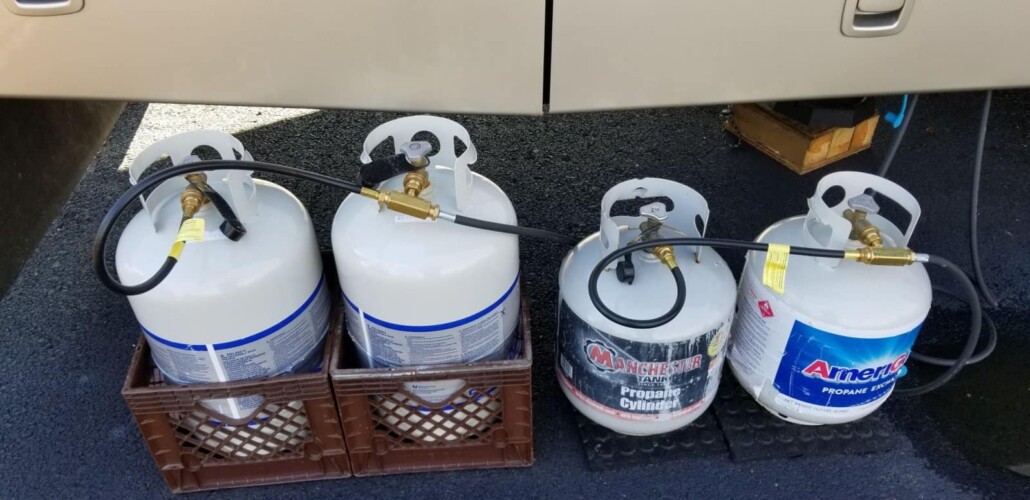
- Prevents freeze ups. RV propane furnace ducting warms plumbing located in and below the floors (and other areas of your RV). This prevents potential damage to pipes and other components in freezing weather.
- Uses little electricity. RV furnaces require very little electricity to operate. Most operate on 120 watts or less. This is compared to the 1,500 watts of an average portable electric RV heater.
- 120 volts are unnecessary. RV furnaces operate on 12 volts DC. You can operate them on your RV batteries. For avid boondockers, this negates the need to run a generator or plug into shore power.
- They don’t take up extra space. RV gas heater furnaces are built into your RV and don’t take up valuable storage space. And they don’t take up floor space like an electric heater does.
Propane heat is safer than portable electric heaters. Everyone knows electric heaters come with safety risks. According to Consumer Reports, portable electric heaters are responsible for 1,700 fires and approximately 80 deaths annually.
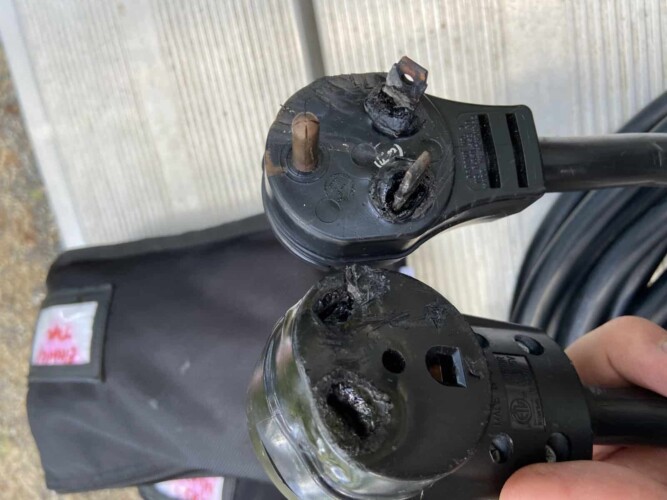
Hopefully the above information helps you answer the propane heater vs. electric heater question for your RV lifestyle.
RV propane heater vs electric heater: final facts to consider
If you choose to add an electric heater to your RV heating system, these portable RV-size heaters can help you decide on a model.
And if you stick with propane heat with a forced air furnace, or even portable propane heaters, remember to crack a window. Proper ventilation is required to reduce the risk of carbon monoxide poisoning.
Do you enjoy camping without the comfort of electricity and water hookups? Consider these RV propane heater alternatives to your RV furnace.

